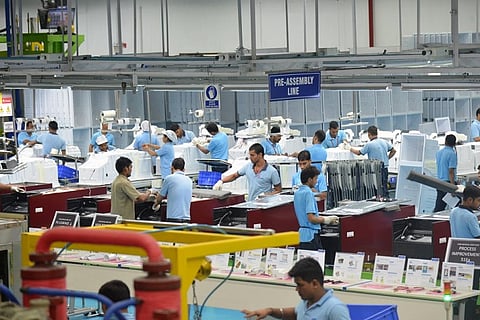

The Indian government’s decision of bringing the deadline for the Phased Manufacturing Programme (PMP), ahead by one year may have some consequences such as Samsung reportedly informing the government that it will reduce the volume of some of its flagship models like the Samsung Galaxy S9 and Note 9 being manufactured in India.
For the uninitiated, Phased Manufacturing Programme (PMP) is a scheme where the foreign manufacturers are allowed a window to import their components and assemble their products here. But the time allowed must be used to simultaneously develop local vendors or setup the components making units in India itself. This was to run till 2020, as per the original announcement, but suddenly the government has changed its policy and wants the compliance to be over by this February.
Companies failing to adhere to this revised deadline, will end up paying higher duties on imported components.
Samsung’s case is a typical example. The South Korean company decided to make its devices including the high-end phones here. It has setup a huge plant as well. Some critical components like the display panels were to be made here too but the time taken to setup a manufacturing unit for such high-technology products is longer. Samsung had planned to do it by 2020. It would have stuck to the PMP schedule as well. But this change in the government policy to bring the date ahead to 2019 means the company will have to import the components till the plant goes on stream. That will mean it will have to pay an additional 10-11% on these important components.
This is the background in which the company has now said it will stop the making of these phones here and import the quantities required to sell within India from its facilities in countries like Vietnam. More importantly, Samsung would have exported a large part of these Samsung Galaxy S9 and Note 9 phones from the Indian facility to some of the markets. This will also now be affected. It may be relevant to mention here that Samsung has stopped assembling its TVs in India following a similar duty imposition of 5% on some key components.